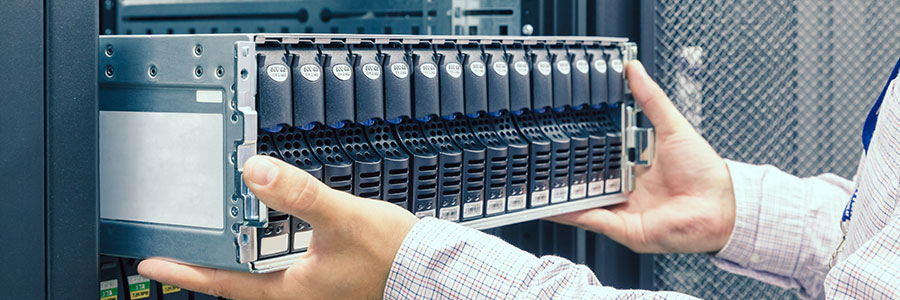Today, patient care heavily depends on your access to healthcare data, which is why its safety and integrity is paramount to the success of your practice. Unfortunately, just like paper documents, digital data is also subject to physical damage such as hardware failure or accidental loss.
While any kind of information, digital or hard copy, is vulnerable to both natural and man-made disasters, the former presents its own set of challenges. Ransomware and data theft can quickly cripple a practice. Extended power outages can make providers unable to access critical patient data. Additionally, data regulations compliance imposes backbreaking penalties for every data breach. With these in mind, consider these factors when determining how often your dental office should back up your data.
What does your current infrastructure look like?
Today’s dental practices rarely store all their data on an in-house server and, even if they do, they’ll end up relying on a single point of failure. On the other hand, computing infrastructures are getting more complex as organizations rely on an increasingly wide array of mobile, cloud, and in-house computing resources. As such, there’s a lot more to look after than a few workstations and a server.
The first step towards building a rock-solid backup and disaster recovery program is to identify your digital assets' physical location and the conditions they are stored in. Consider factors such as operating systems, virtual machines, applications, and cloud-hosted systems. Before you can start safely backing up your data, you’ll need a complete inventory of every asset in your care.
Start with your compliance obligations
Being subject to the Health Insurance Portability and Accountability Act (HIPAA), every dental practice in the United States is legally required to retain certain records for at least six years from their date of creation. This includes both electronic and written records, security and privacy policies, and any other documentation that supports HIPAA compliance. Furthermore, the law also requires organizations to maintain the integrity of their records and take every reasonable step to prevent unauthorized access to them.
In conclusion, your compliance obligations make it clear that you need to retain an unmodified archive of all your data for at least six years. Preferably, this should include digitized copies of any paper documents too. It’s imperative that you keep all records backed up off-site and create redundancies that are themselves compliant with data regulations.
Make speedy recovery a priority
Backup and disaster recovery are all about getting back to business as soon as possible with minimal or no losses. As such, routine manual backups simply aren’t enough, especially now that dental organizations generate large amounts of data throughout the day every day. That’s why you need a real-time backup solution that retains current copies of records and other data as they’re created.
Nonetheless, many organizations still don’t look beyond the importance of backup. Every bit as crucial is disaster recovery. With built-in redundancies and real-time backups, you’ll be able to switch to an alternative operating environment almost seamlessly. This way, your practice will be able to continue its operations with minimal or no disruption. With cloud-hosted solutions at your disposal, there’s no longer any excuse for things like a ransomware attack bringing your practice to its knees.
Pact One works exclusively with dental practices to provide IT solutions and expertise that increase performance, guarantee compliance, and reduce operational costs. Call us today to find out how.


